Lukas Dhont’s film Close to open in Australia
A movie about the innocent friendship of two teenage boys was deeply personal for director Lukas Dhont.
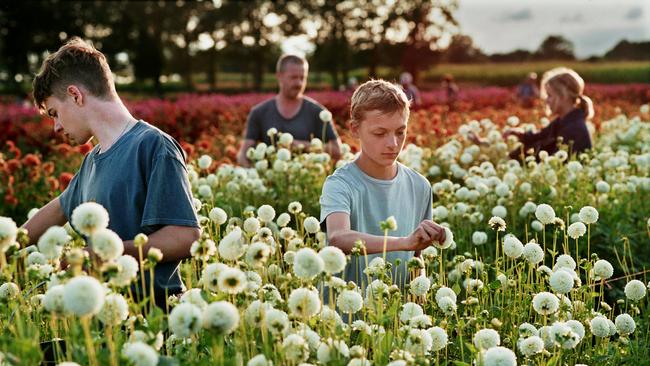
When Emilie Dequenne won the Cannes Film Festival’s best actress award for the Dardenne brothers’ Rosetta in 1999, it came as a surprise, especially as the Belgian actor was 17 when she made the film. She played a teenager who lives in a caravan park with her alcoholic mother and wants to escape.
“I felt lucky,” the 41-year-old now says of the award. “Sometimes the stars are aligned in the right position. And it happened to me, but it could have been different.”
Even so, Dequenne says she can’t watch Rosetta anymore. “I’m too young in it, so it’s very difficult for me. But now I can understand it more because I’ve been seeing the kids working in Close and carrying the film on their very young shoulders.”
Lukas Dhont, the Belgian writer-director of the French-language Close, which is Oscar-nominated for best international film, cast Dequenne, who hails from Wallonie, not only because she is his favourite Belgian female actor, but because she was perfect for the role of the mother of a troubled son. Dequenne also won the best actress award for Joaquim Lafosse’s Our Children in Cannes’ Un Certain Regard in 2012.
“Emilie has played incredible roles and every time she is on screen I connect with her,” Dhont, 31, says. “She’s very real and working with her has taught me a lot as a director. She has nuance in her performance. She would change every little detail and do different things. What was so wonderful, of course, is she knows what it’s like to be young and to play for the first time in a film. So she was not only an actress in this film but she was accompanying the two young performers.”
Close follows 13-year-old Leo (Eden Dambrine) and Remi (Gustav de Waele), who are inseparable, initially playing together in a makeshift fort near a blooming dahlia field through which they gleefully run. Yet as his peers question the intimacy of their relationship, Leo distances himself from Remi, who is devastated. Variety has described the film as “heartfelt”, depicting “as pure a portrait of innocent, innocuous same-sex affection as we’ve ever encountered on film”. Still, it has largely been difficult for critics to write about such an emotional movie.
“It’s very complex,” Dhont admits. “It was a very difficult film to write and it’s also a very difficult to write about. It’s a film that changes drastically and where the tone transforms.”
In the story, which he co-wrote with Angelo Tijssens, he draws on the grief he felt as a child, though not for the loss of a best friend. While Dhont is openly gay, he says his themes are universal.
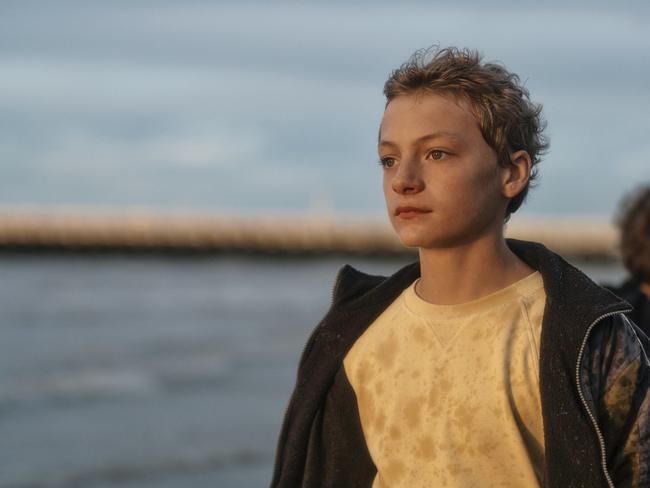
“I had not really seen that experience of childhood grief, apart from maybe L’Incompris (Misunderstood), by Comencini,” he says.
“So I wanted to express that because it feels so different from when you grieve as an adult. I pushed away people I didn’t want to push away, I lost connections and friendships that I didn’t want to lose, just because I wanted to be more like the others, and therefore betrayed parts of myself.
“I thought I was the only one doing that and then I realised we were all doing that, because we often fear ourselves and we often fear intimacy, and it makes us crawl into our little shell.”
Integral to the film’s success was the casting of Dambrine who, like Victor Polster in Dhont’s 2018 debut, Girl – the groundbreaking film about a trans dancer that won best first film at Cannes – is a dancer. Dhont draws on personal experience in his writing.
“I knew I wanted to be a filmmaker at the age of 12,” he says. “But before that I wanted to be a dancer and somehow the dream of becoming a dancer has always stayed in me. I very much write like a choreographer more than a scriptwriter because there’s this dancer energy inside of me. I’m attracted to people who communicate with their bodies.”
Perhaps the key to Dhont’s success is his personal approach to filmmaking, as Dequenne notes. “Sometimes he had to be very strong with the kids to get what he wanted and actually I was the mother on set. It really put me in this position to protect them, to hold them, to reassure them.
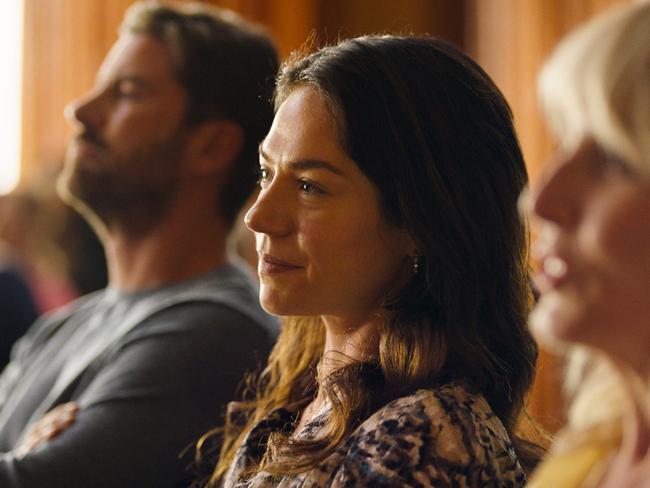
“Lukas’s way of working is to create bonds between the actors. We are not working around a table and reading the scripts. We are meeting on the weekends and baking cakes, going on a boat trip, doing the shopping, eating ice cream. It really creates moments that allow us to love each other and not pretend we love each other. It’s necessary for actors of that age to have that, and it’s not only at that age. For me, it was so good to not have to make anything up.”
Dhont has maintained a close relationship with both Polster, who is working as a dancer in Germany, and with Dambrine, who he says still has the desire to dance while fielding acting possibilities. “He really is an actor. He has that empathy and he’s able to transform,” Dhont says.
While Dhont has no children of his own, Dequenne has a 20-year-old daughter who is bisexual and who she says still really needs her mum.
“I’ve raised my daughter in a way that she knows she can tell me anything,” Dequenne says. “I’m so open about everything, even if – when she told me that she was bisexual – she was crying. I said, ‘But why do you cry with me? I don’t understand when you have a parent who loves you, whatever you want to be, whatever gender you want to be’. I mean, I don’t care. She knows I don’t care. But even with that she was very fragile.”
Of course, this is relevant to the film’s themes. “Every movie I do is because it’s something that really touches me,” Dequenne says. “I can’t go and do something for nothing. I mean, when I go for something, I really go 100 per cent. If I don’t have something that truly moves me, I can’t work the way I want to work.”
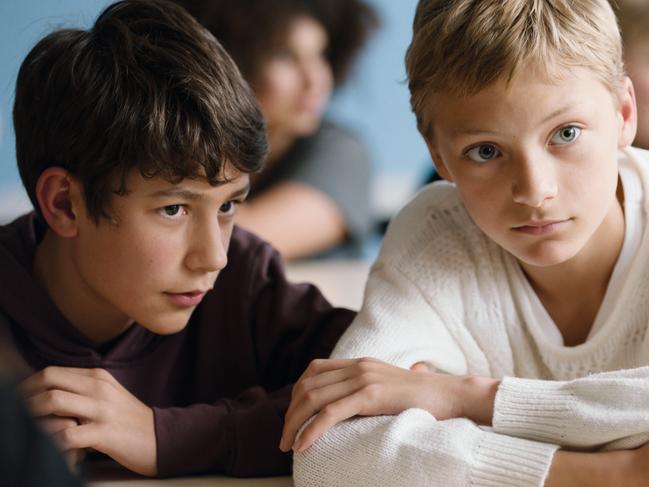
Dhont says his desire was primarily to make a film about two mothers and two young boys. French actor Lea Drucker plays Remi’s mum.
“I’m a mamma’s boy,” Dhont says with a chuckle, “so mothers are important to me. I met some incredible mothers who had been in similar situations as in the film and they inspired me to write roles in which a mother holds up a shield in order to protect themselves from their feelings. Much of the direction of the young actors happened through Lea and Emilie, and I want to give them credit for that.”
Shortly after Cannes, where Close had its world premiere and won a Grand Jury prize, it won the best film prize in the inaugural Sydney Film Festival competition.
“It was really encouraging,” Dhont says. “When we arrived in Cannes, we had been in the studio until the week before. So I was incredibly excited, but also incredibly tired. I’d been in a bubble and I remember sitting with my mother in the car after the standing ovation and asking her, ‘Did that go well?’. I was also insecure and I wanted to protect myself.
“So when the Sydney award came, the beauty of it was that it opened me up, because it came from a completely different place in the world. There was this resonance and response, and it gave me this gift of embrace. We’d really tried to make a piece that translates the human condition, rather than being focused on one background or culture. So with the Sydney award I felt we had been able to transcend that idea of borders.”
Two recent awards for Close that Dhont counts as important came from China’s Silk Road Film Festival, for best film and best director.
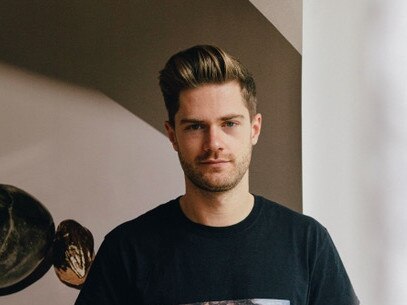
“I feel like it’s such an important place because it’s so difficult for an audience there to see this film,” he says. “It has had such resonance there, because I received many messages from people in China about how it spoke to them. There’s a sort of power for me when it comes from a place where I know how fragile it is to talk about these things.”
Dhont is speaking via Zoom from New York just before his Oscar nomination was announced. The articulate, handsome, sharply dressed director is in the middle of his film’s award campaign. Is it gruelling?
“It’s a very different part of filmmaking,” he admits. “I find it intriguing. When the film was finished I couldn’t see a film anymore. I just saw a collection of details, a collection of possibilities and of things maybe I would have changed or done differently.
“So as people talk about the film, I feel like I’m able to reconnect to it. I’m able to see it again as a film and this has been great and very rewarding. But of course, yeah, campaigning is also so much. It’s about putting your film out there and giving it visibility. It’s about celebrating it while trying to stay authentic. It’s a rollercoaster and we’ll see wherever that rollercoaster is taking us next.”
Close releases in cinemas on February 16.

To join the conversation, please log in. Don't have an account? Register
Join the conversation, you are commenting as Logout